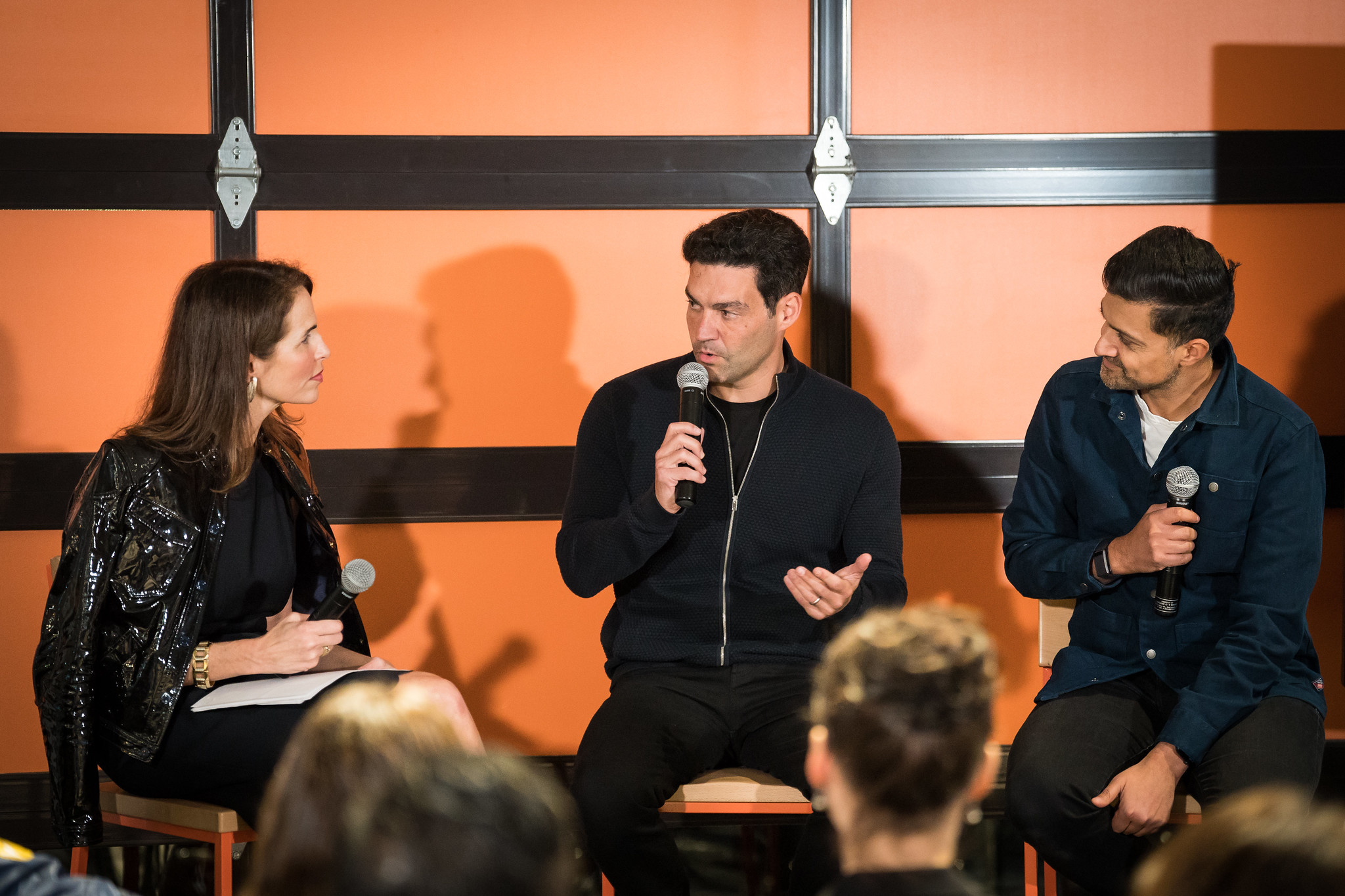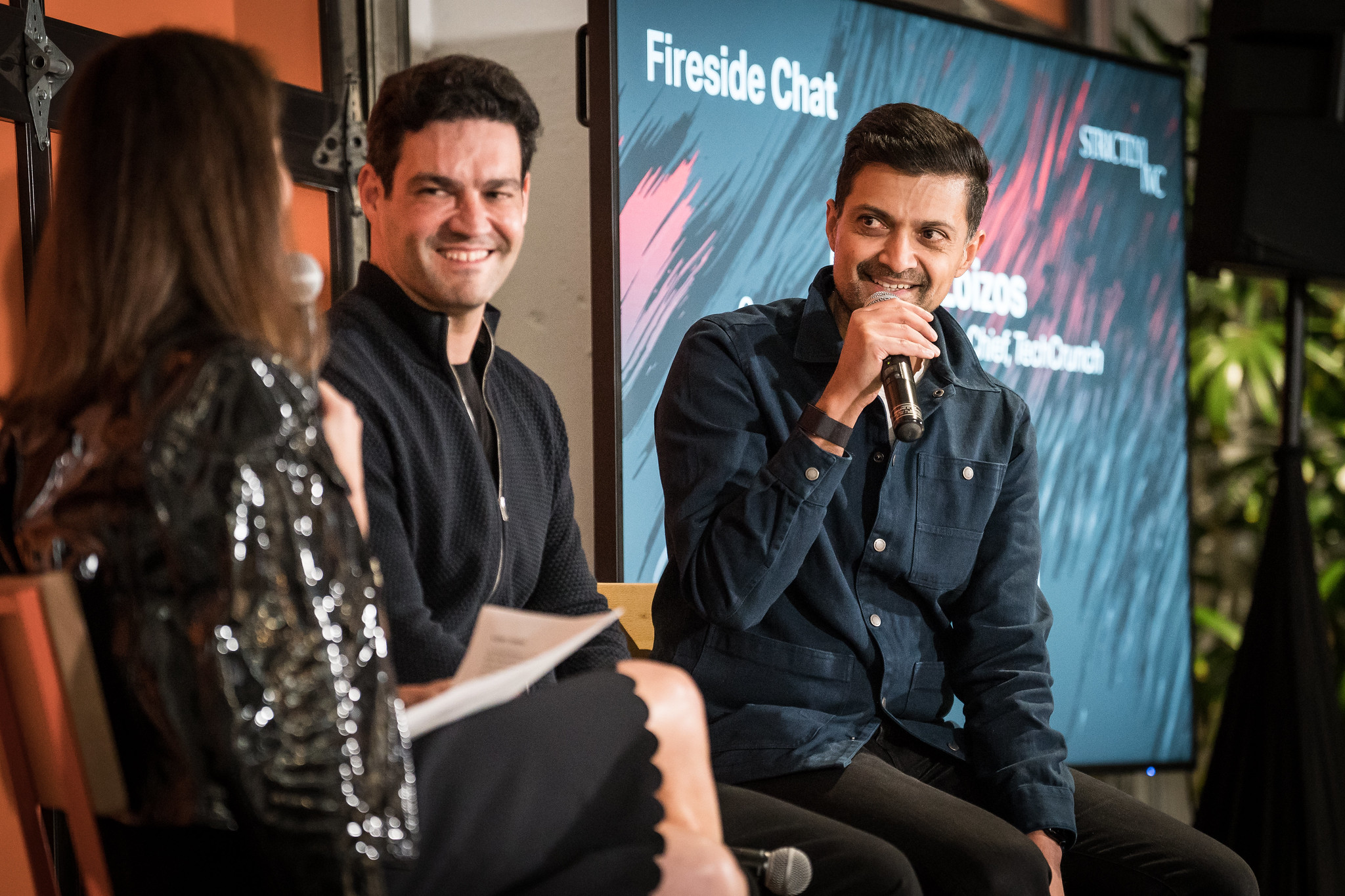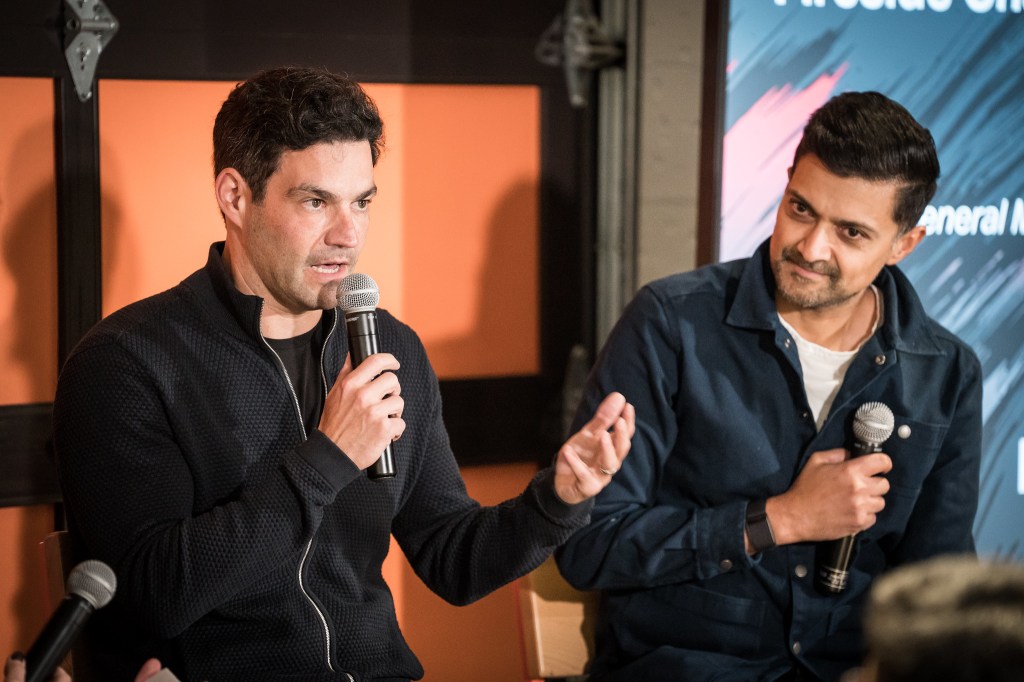Last week, at a StrictlyVC event in San Francisco, we sat down with Mamoon Hamid and Ilya Fushman, two longtime VCs whose paths first crossed as children in Frankfurt, Germany, and who were brought in to reboot the storied venture firm Kleiner Perkins roughly six years ago.
They’ve seemingly accomplished their mission to burnish the brand. Among Kleiner’s bets in recent years: Rippling, the workforce management company founded by serial entrepreneur Parker Conrad, which was valued at more than $11 billion last year; Loom, a video messaging outfit recently acquired by Atlassian for just under a billion dollars; and Figma, the design tool company that came this close to being acquired by Adobe for $20 billion — and that Fushman and Hamid argue is now happily charting a course as an independent company.
Perhaps unsurprisingly, team Kleiner is also leaning heavily into AI investments, and it’s these about which we spent the most time talking. You can find video of that chat at page bottom; meanwhile, excerpts from our conversation, edited lightly for length and clarity, follow.
The last time we sat down together in person was four years ago, at an earlier StrictlyVC event. At the time, SoftBank dominated the conversation. It has since retrenched; what do you think its impact was on the industry?
IF: We’re coming off of three to four years of just incredible amounts of capital going into venture, and that’s not just SoftBank — that’s a lot of folks who’ve had growth funds, crossover funds. And that flooding of capital has done a few things. One, it created a lot of big companies. Two, some of those companies [became] overfunded and some of them now have to rationalize what happens to them. Our contrarian approach when we were here four years ago was to go back to basics and focus on early stage [startups] primarily, where we said, “Hey, we’re just gonna have a venture fund and a very small team.” We’ve always thought this is much more a boutique business than some of these larger players.
Your firm appears bigger than when we last sat down. You now have investors and specialists and advisers from the old guard [at KP], including Bing Gordon and John Doerr.
MH: I think we might actually be smaller than when we last met. I think our total headcount in the firm is in the low 50s.
Does “everything AI” change anything? Can you do more with less, or do you actually need more people chasing after all these AI researchers who keep leaving Google to start companies?
MH: It’s incredible to have this tidal wave of technology innovation. I moved to the Valley in 1987 when we were in the middle of the internet boom, and to be able to live another boom like this twice in your lifetime feels like a dream. So I think there’s no better time to be alive than today and to invest in startups because to your point, there is going to be a step-function change in how we all get to live and experience life, as well as how we work. It will come in the form of productivity that we will all gain through AI, and I think we’re already seeing that in the kinds of businesses that we’re backing — whether it’s like in legal or in healthcare or for software developers. AI is really supercharging the highest paid type of employees that are out there. They get to do more in less time.
Regarding all these AI engineers spinning out, are VCs actively reaching into these big companies with offers to stake them? Have you done this?

IF: I think that’s definitely happening but the pull factor of AI — the wow factor — has actually pulled folks out of these companies themselves. As these tools become more useful and data becomes more accessible, these opportunities are becoming much more obvious and much more accessible. The big thing for us with this first wave of folks trying to come out and start these companies was trying to understand: Are they really the folks who know how to do this? We rely on our founders for [help with these questions]; we look for that pedigree, the folks who know how these things work.
If you think back to the last 10 years in venture, there are these waves where technical talent becomes the scarcest resource, and we’re seeing that right now.
How are your portfolio companies dealing with this challenge in terms of hiring? Meta and Google and OpenAI are offering multimillion-dollar packages for this talent to stick around.
IF: We have companies that, like Harvey, are transforming the legal profession. We have companies like Ambience that are transforming healthcare. We have companies like Viz that are doing automated stroke detection and medical diagnostics. The mission definitely resonates with the people who are joining those companies; that’s a huge component. Second, platform companies are building a lot of phenomenal infrastructure, but when you get into real-world use cases and go into these niches that turn out to be really big over time, you realize that you need to tweak the models and potentially build your own models and potentially your own infrastructure, and that becomes a really interesting technical challenge, which is also incredibly attractive.
From the outside, it’s hard to understand how these startups build moats — or how strong these moats can be given how quickly everything is changing.
IF: It depends on the company. Moats and overall market size are the most difficult things to figure out as an investor; they’re typically the things you get wrong the most.
One thing we’ve learned over our history is that we always undervalue our biggest winners. The companies that do the best always grow faster. They create or expand their market much more than anybody could have anticipated. So we look for some intangibles, one of which is incredible engagement from customers. Like, when the product becomes part of your daily use, that is really hard to tear out.
The more obvious piece of the moat is the piece of the market that you’re in. A lot of the companies that we’re backing, especially in AI, they’re taking a big problem space that a company can and should own. Enterprise assistant, for example, that’s a big space, and the people who figure that out first are going to be the people who move the fastest. If you look at AI, unless you’ve built an incredible product that’s just flying off the shelves, you don’t get distribution for free the way you did with mobile. AI requires distribution and it requires data to improve the product experience, so the first movers who define a category of a product can, in our view, run much faster than anyone else.

How many AI-related pitches are you seeing on a weekly or monthly basis?
MH: From a percentage standpoint, I’d say more than 80%. To be fair, if you were building a company in 1996 and you didn’t mention the internet, you’d be out of your mind, right? In the same vein, not mentioning AI or utilizing it would be a missed opportunity.
And how active are you in this realm, if we can call it that?
MH: If you looked like last year from Q1 to Q3, it was the slowest year we’d had in 13, 14, 15 years. December, meanwhile, was a really good month.
That’s around when you led a deal in Together AI, a very buzzy deal. Why are people so fascinated with this company?
IF: It’s running a platform and set of services for people who want to run their own models. It’s a bit of, in some ways, an orthogonal bet to sort of the oligopoly [centered on OpenAI, Microsoft and Google] who provide infrastructure, but it’s a company with incredible customers, really strong growth, and a phenomenal nominal team, and the numbers speak for themselves. Again, we’re building vertical experiences — in healthcare, legal, software, engineering, science — and there will be fine tuning and [proprietary] modeling that may be required for some of these use cases, and that opportunity is actually quite exciting because of that.
I understand you have also invested in a wearable started by somebody who would make VCs salivate. Tell us more!
MH: I’m not sure I can tell you more today. I don’t think they would like that. Next time.
Based on what you are seeing, do you think one AI wearable will win? Just as we carry around one phone, will we use one wearable device?
MH: I think we all ask ourselves the question of what is the computing platform beyond the mobile phone. Some people put on Oura rings, some put on Fitbits. I’m wearing a Whoop. These are pretty basic wearables. They’re not all that smart.
What’s capturing the imagination of all of us is what is the next computing wearable that we’re all going to adopt that doesn’t look like a cell phone. There’s the Rabbit, there’s the Humane AI pin and soon you’ll see the Vision Pro. There’s exciting stuff happening. But as you know, it’s very difficult to get consumers to adopt a new form factor and a new way of doing things. It takes some incredible design and a low-cost product and beautiful interfaces, and I think we’re excited to see all these things.
Figma, whose Series B round you led in 2018, just halved its valuation, from the $20 billion Adobe was planning to pay for it, to $10 billion. Where does it go from here?
MH: Figma is one of those once-in-a-decade kind of companies, both from the team, the product they built, the love from its community, the revenue profile, the profitability. It’s the venture capitalist’s dream. So it’s not sad that it is charting its own independent course. It was quite bittersweet to agree to sell the company for everyone around the table in September of 2022. So I think we’re very energized about the future and the company continues to perform incredibly well.
(Note to readers: Our next StrictlyVC evening is coming up Thursday, February 29, in Hollywood, in partnership with Lightspeed Venture Partners. If you’d like to join us for another night of drinks, bites and great conversation, you can still nab a seat here. Note that our recent San Francisco event was sold out, and we expect our LA event to sell out as well.)































Comment